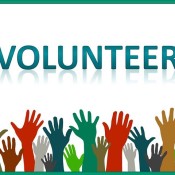What the Homeless Need & We Take For Granted
Nov 08
Homeless people are defined by the Department of Housing and Urban Development as people who are living either on the streets or in shelters, in addition to those who are at a high risk of losing their current home. Every year, about 2 million people in the US are living without a conventional residence. An estimated 25% of the homeless are children.
Causes of homelessness can range from low-paying jobs to substance abuse and untreated mental illness. Regardless of the reason, people who are homeless often have little to no access to everyday care that others may take for granted. Whether it be professional dental visits, everyday care like brushing and water-flossing or oral care information such as what is offered at pearlywhytes.com, homeless people have a right and a need for proper dental care.
 Homeless people are twelve times more likely to have more throughout their teeth, as well as missing teeth, than the general population. People with an unstable residence are about six times more likely to have dental issues than those with a long-term residence. Homeless people have intensive dental problems that only get worse, however they do not have the means to fix them. With 83% of the homeless population not having a professional cleaning within the last 4 years, their rate of poor dental health is high.
Homeless people are twelve times more likely to have more throughout their teeth, as well as missing teeth, than the general population. People with an unstable residence are about six times more likely to have dental issues than those with a long-term residence. Homeless people have intensive dental problems that only get worse, however they do not have the means to fix them. With 83% of the homeless population not having a professional cleaning within the last 4 years, their rate of poor dental health is high.
Oftentimes, homeless children have never seen a dentist. This leads to pain and infections in the children that could otherwise be prevented. Studies have shown that dental hygiene is very important in getting a homeless person back on their feet.
Missing and decayed teeth diminish self-esteem, which can then hurt a person’s ability to get a job, eat, and return to society. It can be an embarrassing thing for homeless people to deal with along with their other struggles.
 Because it may be difficult to carry around teeth cleaning supplies, and with uncertain access to clean water sources, homeless people often give up on their oral health. Inadequate nutrition further adds to the reduction of oral health. Missing teeth may also cause dietary limitations that affect overall health.
Because it may be difficult to carry around teeth cleaning supplies, and with uncertain access to clean water sources, homeless people often give up on their oral health. Inadequate nutrition further adds to the reduction of oral health. Missing teeth may also cause dietary limitations that affect overall health.
Pregnant women who are homeless may have nutrient deficiencies that impair the development of their baby’s teeth, especially during the initial phases of tooth growth. This is not a good or fair start to a baby’s life. It is important for pregnant women to eat a well-balanced diet because a baby’s teeth begin development between the 3rd and 6th months of the pregnancy. Nutrients such as vitamins A, C, and D, as well as protein, calcium, and phosphorous are needed in a woman’s diet to produce healthy teeth in the baby.
 Among all of the vulnerable populations in the US, homeless have the least access to
Among all of the vulnerable populations in the US, homeless have the least access to
any reasonable health services. Not only do healthcare providers not want to spend their time with patients without money or health insurance, they are also reluctant to have homeless people in their private offices during normal office hours when other patients are present. Many want to offer some help but are unsure how. Some dentists have made an effort to provide their services outside of the office, but that is not a national trend that is gaining popularity.
While most homeless families are eligible for dental care through Medicaid and CHIP, this often does not cover a wide range of localities or families and the coverage varies by state.
People who have access to regular dental care may think of it as a painful thing to go through, but it is really something that is taken for granted. Although visiting a dentist may be unpleasant, not having access to dental care results in a much more painful experience in the long run; Some food for thought the next time you are sitting in a dentist chair. Everyday dental hygiene should be taken advantage of if there is access to it, including brushing twice a day and flossing on a regular basis. There are modern tools, such as water flossers, that make dental hygiene easy and effective.
Read More




